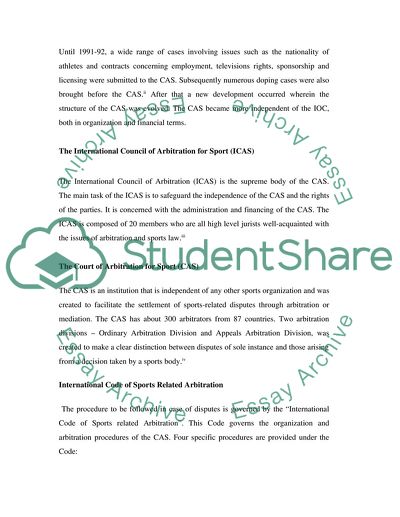Cite this document
(The Role of the Court of Arbitration for Sport Case Study, n.d.)
The Role of the Court of Arbitration for Sport Case Study. Retrieved from https://studentshare.org/sports-and-recreation/1545522-sports-leisure-and-coaching-law
The Role of the Court of Arbitration for Sport Case Study. Retrieved from https://studentshare.org/sports-and-recreation/1545522-sports-leisure-and-coaching-law
(The Role of the Court of Arbitration for Sport Case Study)
The Role of the Court of Arbitration for Sport Case Study. https://studentshare.org/sports-and-recreation/1545522-sports-leisure-and-coaching-law.
The Role of the Court of Arbitration for Sport Case Study. https://studentshare.org/sports-and-recreation/1545522-sports-leisure-and-coaching-law.
“The Role of the Court of Arbitration for Sport Case Study”, n.d. https://studentshare.org/sports-and-recreation/1545522-sports-leisure-and-coaching-law.


